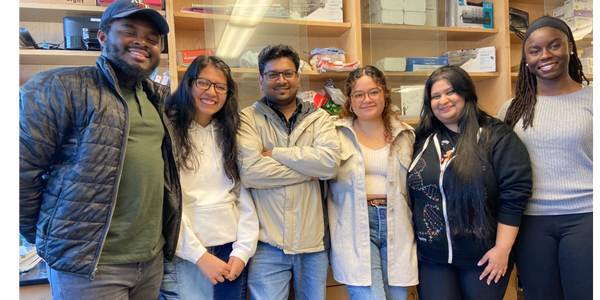Welcome to the Kim Lab for Neurodegenerative Research

Welcome to the Kim Laboratory for Parkinson's disease research. Our lab research is focused on identifying potential therapeutic targets based on understanding of PD pathology and developing novel therapeutics for Parkinson's Disease (PD). We utilize molecular & cellular biology-based methodology to investigate the pathological mechanisms of PD.
Please check out our recent publications and presentations for more details.

Common Laboratory techniques: Western blot, qRT-PCR, cell viability/cytotoxicity assays (MTT & LDH), ELISA, protein activity assays (including DAT, HAT & HDAC), ROS measurements, Protein aggregation (Thioflavin T) assay, primary neuron/astrocytes/microglia culture, microarray, Immunoprecipitation, immunohistochemistry, confocal microscopy, stereology, and Mass Spectrometry & MS imaging (collaboration) in our study, while accommodating new and high-technological advances including Nano-String for testing lab hypotheses.

PD is the most common neurodegenerative motor disease, affecting more than 1% of the population above the age of 60 in the US. The disorder is primarily characterized by the selective loss of dopaminergic neurons within the Substantia nigra pars compacta (SNpc) in the midbrain and the formation of intraneuronal inclusions called "Lewy bodies" which contain alpha-synuclein as their major protein component. The pathological mechanisms associated with PD are largely unknown, however, the A53T mutation of alpha-synuclein causes Lewy body formation and is a well-known genetic PD model. Our goal is to improve our understanding of PD pathological mechanisms which may lead to finding efficient and safe therapeutics in the treatment of PD.
Contact Us
See us in person on Delaware State University Main Campus in the Lunar Mishoe Science Center Rm 168
We'd love to interact with you and answer any questions you may have, so feel free to visit during normal business hours.
Send us an email: yhkim@desu.edu
1200 North Dupont Highway, Dover, Delaware 19901, United States
Hours
Open today | 09:00 am – 05:00 pm |
Copyright © 2022 Kim Lab for Neurodegenerative and Senescence Research - All Rights Reserved.
This website uses cookies.
We use cookies to analyze website traffic and optimize your website experience. By accepting our use of cookies, your data will be aggregated with all other user data.
